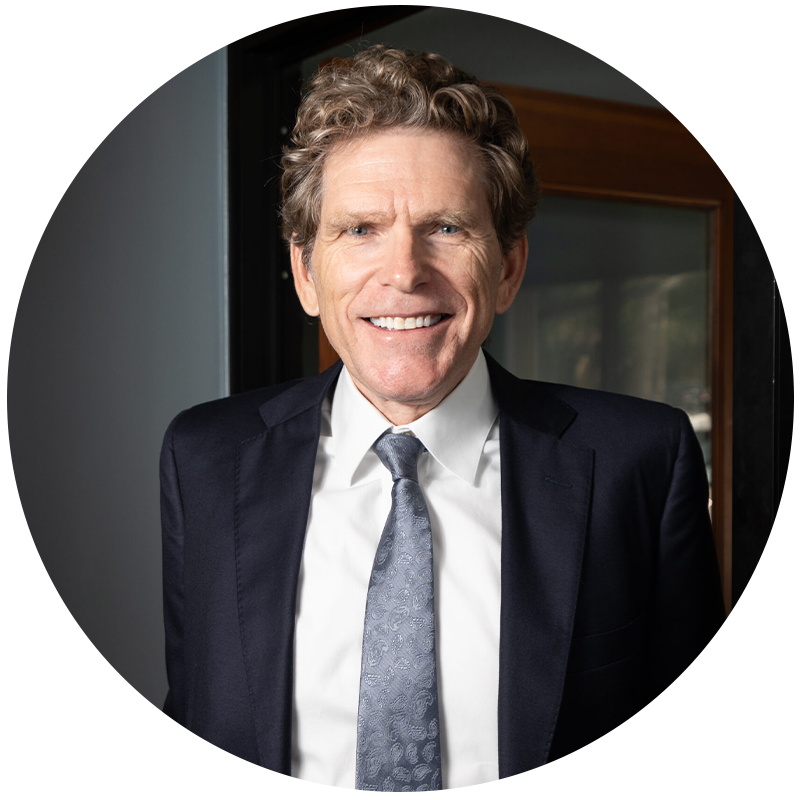
One of history’s most recognized successful active investors, Warren Buffett, has long advocated for most investors to buy low-cost index funds. In his 2013 letter to Berkshire Hathaway shareholders, he revealed his instructions for his wife’s inheritance: put 90% in a low-cost S&P 500 index fund and 10% in short-term government bonds.
Buffett calls this the “know-nothing” approach to investing – and he means this as high praise. He argues that most investors, whether they acknowledge it or not, fall into the “know-nothing” category. Rather than this being a weakness, Buffett suggests embracing it and using it to your advantage through indexing.
It’s worth noting the significant contradiction in Buffett’s recommendation. While advocating index funds for average investors, Buffett himself has built his fortune through active stock picking and business acquisitions. Berkshire Hathaway operates as a highly concentrated portfolio with significant positions in select companies – the opposite of broad indexing.
Even more striking is Buffett’s strategic use of insurance float as a form of leverage. This permanent pool of premium dollars functions as low-cost leverage, allowing Berkshire to effectively invest more than 100% of its equity capital in stocks and businesses. While Buffett recommends a 90% equity allocation for individual investors, his use of insurance float enables him to achieve much higher effective equity exposure – a strategy somewhat analogous to an individual investor using a margin account to amplify returns.
This “do as I say, not as I do” approach raises questions about whether his advice applies universally.
A critical limitation of Buffett’s recommendation is its narrow focus on the S&P 500 index. While often treated as synonymous with “the market,” the S&P 500 represents only a subset of available investment opportunities:
This U.S.-centric, large-cap focus creates potential blind spots for investors. Historically, there have been extended periods where international stocks, small-caps, or other market segments have outperformed the S&P 500. A more globally diversified approach using total market indices might provide better risk-adjusted returns and protection against U.S.-specific economic challenges.
Buffett calls indexing a ‘know-nothing’ strategy – but this ‘protection against ignorance’ beats most active investors trying to prove they ‘know something.’ Sometimes the wisest approach is admitting you don’t know, and your crystal ball 🔮 is cloudy. On the other hand, $XLK >… pic.twitter.com/OQmWnCOHJq
— Parker Evans, CFA, CFP (@HParkerEvans) January 16, 2025
One area where Buffett’s personal investment approach perfectly aligns with his index fund recommendation is tax efficiency through minimal portfolio turnover. Buffett famously stated, “Our favorite holding period is forever,” highlighting his preference for extremely long-term investments. This isn’t just philosophical—it’s a mathematical advantage that both Berkshire Hathaway and individual investors can exploit, albeit with some important differences.
When investors sell appreciated assets, they trigger capital gains taxes that immediately reduce their capital base for future compounding. By avoiding unnecessary sales, investors effectively receive an interest-free loan from the government in the form of deferred taxes. This allows the full, pre-tax value of investments to continue compounding for decades.
Individual investors actually enjoy several tax advantages that Berkshire Hathaway doesn’t:
S&P 500 index ETFs naturally implement this same low-turnover strategy. With turnover rates typically below 5%, and favorable tax structures, index ETFs trigger minimal capital gains distributions. Index funds generally only trade when companies enter or exit the index or to manage cash flows—not because of active trading decisions.
This is precisely why Buffett’s recommendation of low-cost index funds aligns with his own tax-efficient approach at Berkshire. Both strategies minimize the “tax drag” that significantly erodes long-term returns for many investors.
In contrast, actively managed mutual funds and hedge funds can generate substantial annual tax liabilities for their shareholders through frequent trading. Even when these funds underperform the market on a pre-tax basis, the tax consequences can be punishing with investors facing taxable capital gains distributions even in years when their fund loses value—a particularly painful scenario.
Ironically, individual investors following Buffett’s advice can potentially achieve even greater tax efficiency than Berkshire Hathaway itself by:
This aspect of Buffett’s low-turnover philosophy represents a case where his personal investing approach and his advice to average investors are aligned in principle, though individual investors can potentially realize even greater tax benefits than Berkshire through the preferential treatment the tax code provides to individuals over corporations.
Buffett’s recommended “know nothing” 90% equity allocation may be inappropriate for many investors, particularly retirees who are dependent on their portfolio for living expenses. Higher equity exposure creates several challenges:
Many financial advisors recommend lower equity allocations, typically a 60% / 40% mix of stocks and bonds for retirees, with greater exposure to bonds and other income-producing investments to ensure stability.
While index funds generally outperform active funds as a category, specific market environments and sectors still reward active management:
Warren Buffett’s “know-nothing” approach offers profound wisdom that has stood the test of time. Admitting your limitations as an investor can indeed protect you from the expensive mistakes that erode long-term returns. The simplicity and discipline of index investing remain a powerful strategy accessible to all.
However, a thoughtful investment approach requires acknowledging the limitations of even the wisest advice. The S&P 500 is an excellent core holding in the form of ETFs, but it represents just one segment of the global investment universe. True diversification extends beyond U.S. large-cap stocks to encompass international markets, smaller companies, and possibly alternative asset classes.
For many investors, particularly those in or approaching retirement, a more balanced allocation than Buffett’s 90/10 split provides crucial protection against sequence risk and volatility. The wisdom isn’t mindlessly following any formula—even one from an investing legend—but adapting proven principles to your unique financial situation, time horizon, and risk tolerance.
A well-designed portfolio might blend the efficiency of broad market indexing with selective exposure to areas where you have conviction or where professional management adds demonstrable value. This balanced approach captures the core benefits of Buffett’s wisdom while addressing its inherent limitations.
The sophisticated investor doesn’t rigidly adhere to dogma but instead combines diverse insights into a coherent strategy aligned with their personal financial journey. Whether you choose pure indexing, a core-satellite approach, or something in between, the key is maintaining the discipline to stick with your strategy through inevitable market cycles—perhaps the most valuable lesson we can learn from Warren Buffett himself.
Buffett’s legendary investing success stems from his deep understanding of businesses, risk management, and long-term compounding—not just buying the S&P 500. While his advice to invest in index funds works for many, it’s essential to recognize its limitations and consider how a more tailored approach may better serve your financial goals.
Here are some key takeaways to apply to your own portfolio:
✅ Diversification Matters – The S&P 500 is not as diversified as it seems. Adding international stocks, alternative assets, or sector exposures can improve risk-adjusted returns.
✅ Tax Efficiency is Key – Understanding tax implications, such as capital gains deferral and tax-loss harvesting, can have a significant impact on long-term portfolio growth.
✅ Risk Management Should Be Personalized – A 90% allocation to equities may work for some, but others may need a more balanced approach that includes bonds, real assets, or hedging strategies.
✅ Active vs. Passive Investing Isn’t Either-Or – A strategic combination of both can optimize returns. Active strategies can provide downside protection, while passive indexing offers low-cost market exposure.
Your financial future should be built on your specific goals—not just a one-size-fits-all formula. If you’re unsure whether your portfolio is optimized for risk, tax efficiency, and growth, let’s have a conversation. Successful Portfolios can help craft a strategy tailored to your needs.
📩 Get in touch today for a free portfolio strategy review.
Successful Portfolios is an independent SEC-Registered Investment Advisor based in Clearwater, Florida.
Founded in 2010 by Parker Evans, CFA, CFP, and Joe Baer, APMA, we remain dedicated to guiding investors with complete transparency and the highest level of care.
As fee-only fiduciary advisors, we’re committed to helping you grow and protect your wealth.
Every financial journey is unique. Contact us for a free consultation, and let’s build a personalized investment plan for you and your family.

Parker Evans, CFA, CFP
President, Chief Investment Strategist

Joe Baer, APMA
Client Advisor, Portfolio Manager

Get an expertly tailored investment portfolio custom to your needs. Book a free consult to secure retirement income, reduce taxes, and safely grow wealth.

Get an expertly tailored investment portfolio custom to your needs. Book a free consult to secure retirement income, reduce taxes, and safely grow wealth.
Copyright© 2025 Successful Portfolios. Powered by PressGo Digital